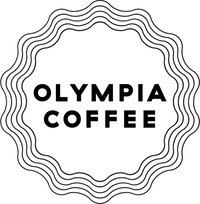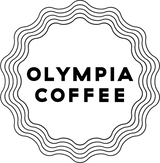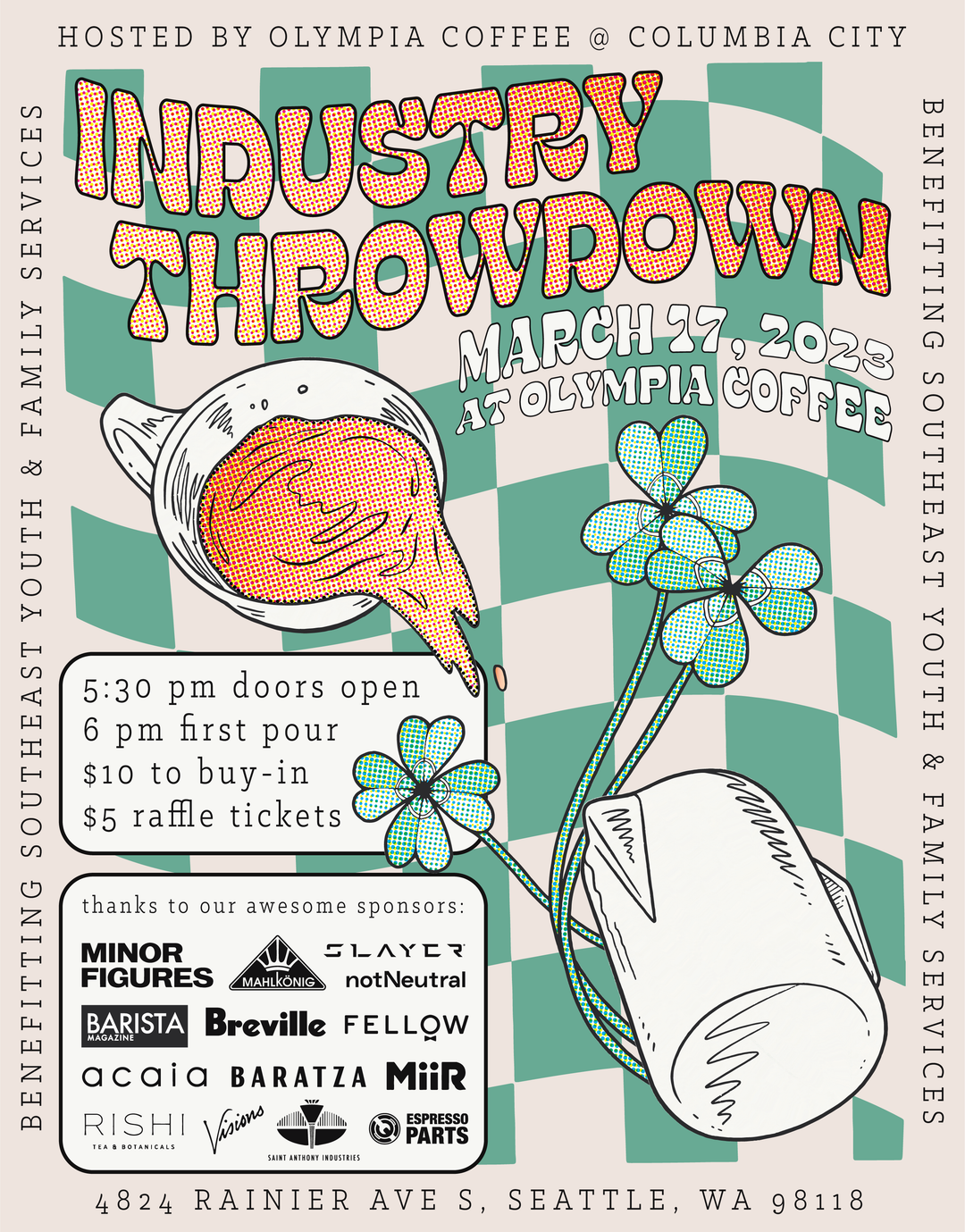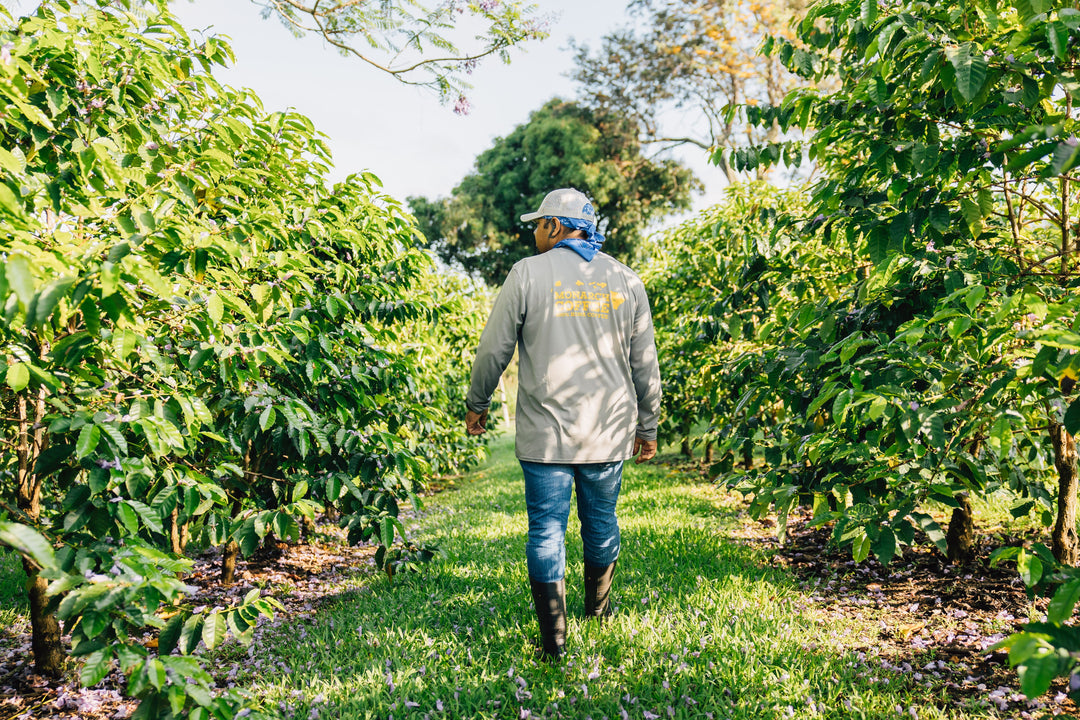Raaka chocolates have been a popular mainstay in our cafes and this month, we’re unveiling our first collaboration chocolate bars: Turkish Coffee and Bergamot Vanilla Latte! There are lots of similarities between the chocolate and coffee supply chains and Raaka is a leader in sustainable, ethical cacao trade. Today, we want to share why the work Raaka is doing is so important, and how it makes their chocolate so delicious!

Q1. Nate & Oliver met a while back and instantly connected over shared values. Nate, what are some of the similarities you’ve found between the coffee and cacao industries?
| I think the main similarity is the way we tie quality to economic growth. A program like “Fair Trade” does a good job of setting the floor, or the social safety net if you will, but what I think Oliver and I are both interested in is how can we help improve the quality of the raw materials we’re receiving so that we can find the ceiling of what price is sustainable for Farmer’s families at origin, our own businesses, and the consumers’ appetites for premium experiences. |

Q2. Transparent Trade is a cornerstone of your sourcing model. Tell us more about why transparency in the chocolate supply chain is necessary and why it goes beyond “Fair Trade."
| Economic stability is so important to everyone. It doesn’t matter where you live, you have fixed costs associated with your mere existence. “Fair Trade” is still tied to commodity prices that can fluctuate wildly. It’s like having a year end review with your employer and being told, “You did a great job last year, but we’re going to pay you 20% less this year”. If that happened to one of us, we’d most likely look for a new job, if you’re a subsistence farmer with some cash crops like coffee or cocoa, you don’t have the choice to look for a new job, you just have to take the pay cut. What we’re trying to do with Transparent Trade is a) create stable market places so that there is more power in the hands of the farmer AND b) educate our consumers about the ways in which commodity agriculture fails a significant portion of the human population. |

Q3. In our own push to source coffee ethically, we’ve seen tangible quality of life improvements for our partners at origin. What impact can transparent cacao trade have on the communities you purchase from? (Feel free to share a farmer, community, or supply chain success story if applicable!)
| Across the board we’ve seen local market prices go up in the areas we source from. We work with Semuliki Forest cacao in Western Uganda. In their region, the large multinational conglomerates that also buy cacao beans there are forced to pay up to 30% more while Semuliki is in their buying season. That price increase has the potential to have substantial impacts on nutrition, healthcare and education. |

Q4. Both of our industries are innovating past systems that have been rooted in the exploitation of laborers and underprivileged communities. What are some ways the chocolate industry can move forward and what does accountability look like in this pursuit?
| Transparency and traceability are key here. Most chocolate doesn’t list where the raw material (the cacao bean) originated, much less how much was paid for it. We can’t have conversations about how to fix something or how to hold companies accountable until we have the basic information we need to do that. |

Q5. Raaka’s sourcing has resulted in stunning quality and vibrancy in the chocolates. How does this focus on the producer affect the flavor consumers enjoy?
| Building respect goes a long way. We like to work with our suppliers as collaborators to improve quality, with a shared understanding both as makers and as farmers/processors, that with high quality comes a better price. Sort of a rising tide lifts all ships kind of philosophy. |

Q6. Our customers have been loving your chocolates in our cafes and one of their first questions is “what is unroasted cacao?” What makes it so special or different from roasted cacao?
| Cacao, like coffee, is fermented. Very little attention in the past had been paid to the cacao fermentation process. In the last 15 years or so, interest and research in cacao fermentation has grown substantially. The flavor of Raaka bars are developed so much by the fermentation profile of our cacao beans. By not roasting, we are preserving a lot of fruity, floral, and earthy flavors present in well fermented cacao beans that can be lost or substantially augmented during the roasting process. |

Q7. How did you manage to capture so much flavor from our coffee when developing the Turkish Coffee and The Calabria chocolate bars? We’d love a little insight into your process!
| It was easy, really. The blends that we used from Olympia for these bars share a similar philosophy of finding the intersection of bold and nuanced, which is what we’re always looking to do as well. We wanted to create a bold chocolate with the Turkish Coffee, so we coarse ground Morning Sun, with it’s nutty, vanilla notes and mixed it into a dark chocolate with ripe red fruit notes made from Kokoa Kamili in Tanzania. For the Calabria, we wanted to showcase the delicate, sweet and fruity characteristics of the Big Truck Espresso so we made a chocolate with coconut milk powder and a cocoa bean from Reserva Zorzal in the Dominican Republic that has notes of clove and prunes. |

Q8. Thanks for bringing joy to our customers in 2020! What are some ways they can learn more about Raaka and support Transparent Trade in 2021?
| You can peruse our website, join our subscription program, “First Nibs”, check out the documentary film, “Setting the Bar”. Most importantly, keep asking questions of the companies you buy coffee and chocolate from. Don’t forget, knowledge is power. |
Head over to RaakaChocolate.com and use code COOLBEANS for 20% off their webstore!
Learn about Transparent Trade and their First NibsSubscription at RaakaChocolate.com
Connect and follow: @RaakaChocolate






